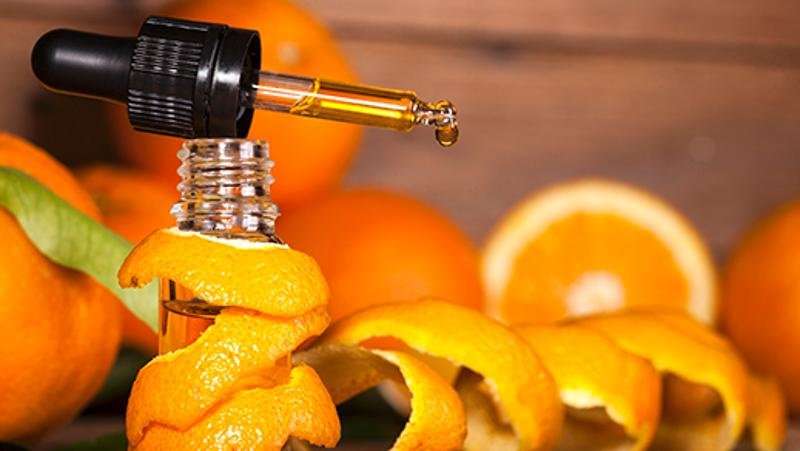Credit: Queensland University of Technology
Waste oil from orange, tea tree and eucalyptus essential oil production mixed with diesel provides a sweet-smelling biofuel blend with comparable performance to diesel-only fuel.
QUT Ph.D. researcher Ashrafur Rahman tested each of the waste oils for performance and emissions as a 10 per cent oil/90per cent diesel blend in a 6-cylinder, 5.9l diesel engine.
"As only therapeutic grade oil can be used, there is a substantial volume of low-value waste oil that currently is stored, awaiting a use," Mr Rahman said.
"Our tests found essential oil blends produced almost the same power as neat diesel with a slight increase in fuel consumption.
"Diesel particulate emissions, which are dangerous to human health, were lower than pure diesel, but nitrogen oxide emissions, a precursor to photochemical smog, were slightly higher."
Mr Rahman said the abundance of the three oils could mean that fragrant fumes on farms were not far off.
"Orange, eucalyptus and tea tree are either native or grown extensively in Australia for essential oil production.
"We see the main use for an essential oil/diesel blend would be in the agricultural sector, especially in the vehicles used by the producers of these oils.
"With further improvement of some key properties, essential oils could be used in all diesel vehicles."
Credit: Queensland University of Technology
Mr Rahman conducted his research in QUT's Biofuel Engine Research Facility. Property tests of the oils were also carried out by Colorado State University, Southern Cross University and the University of the Sunshine Coast.
The report, "Performance and combustion characteristics analysis of multi-cylinder CI engine using essential oil blends," was published in the journal, Energies and in QUT eprints.
More information: S. M. Ashrafur Rahman et al. Performance and Combustion Characteristics Analysis of Multi-Cylinder CI Engine Using Essential Oil Blends, Energies (2018). DOI: 10.3390/en11040738
Provided by Queensland University of Technology






















